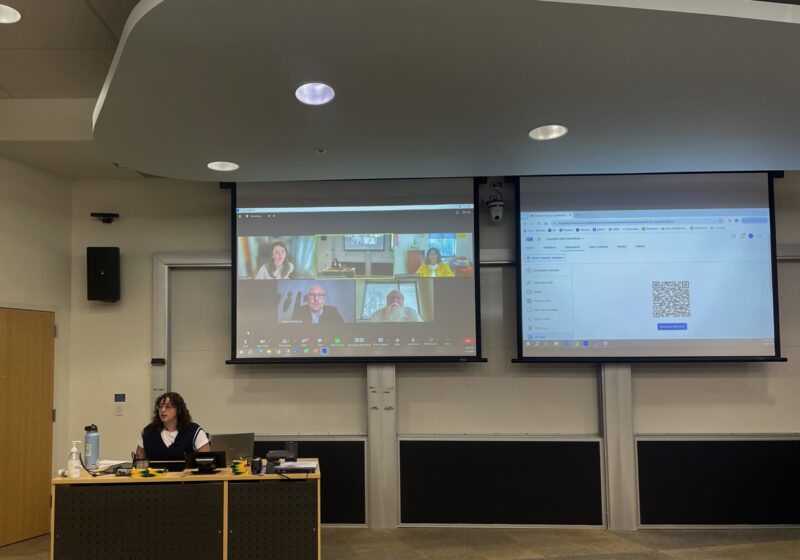In 1970, Tom Wolfe wrote a rambling, seething essay on a party held at the home of Leonard Bernstein. Bernstein, then a member of the moneyed liberal intelligentsia in New York City, had invited a few key members of the Black Panther Party to come speak to and solicit donations from the rest of Bernstein’s ilk. Sidney and Gail Lumet, Barbara Walters, Otto Preminger, Jason Robards…the guest list was a veritable who’s-who of the liberal elite of the period. Wolfe described the party as a muddled mass of white guilt and misunderstanding; the partygoers were ecstatic upon hearing that their donations wouldn’t be tax deductible, while very few were actually familiar with the ideals or struggles of the Black Panthers. The whole event was punctuated by a one Brooke Astor (yes, those Astors) exclaiming, “I’ve never met a Panther!…This is a first for me.”
In the article, Wolfe coins the term “Radical Chic,” explaining the way in which the liberal elite of the day brought themselves to support groups who were, quite often, incompatible with traditional liberal ideals of non-violence, free speech, and inclusivity that they espoused. What he sees is a group of people not fully understanding what exactly they’re supporting, and as for those who do, he has this to say: “One’s heart does cry out – quite spontaneously! – upon hearing how the police have dealt with the Panthers, dragging an epileptic like Lee Berry out of his hospital bed and throwing him into the Tombs…one understands why poor blacks like the Panthers might feel driven to drastic solutions, and – well, anyway, one truly feels for them. One really does. On the other hand…one also has a sincere concern for maintaining a proper East Side lifestyle in New York Society. And this concern is just as sincere as the first, and just as deep.” Men ask the Panther speakers, “…who do you call to give a [fundraising] party?” A favorite of mine, which follows a Panther leader’s exhortation to tear down the oppressive capitalist system by force, comes from an unnamed socialite who wonders aloud, “He’s a magnificent man, but suppose some simple-minded schmucks take all that business about burning down buildings seriously?”
Which brings us to Mumia. Mumia Abu-Jamal (himself a Black Panther for a time), born Wesley Cook, studied at Goddard College briefly in the ’70s, and finished his studies from a prison cell in the ’90’s. In 1981, Abu-Jamal was charged with first-degree murder after he shot and killed Philadelphia police officer Daniel Faulkner while the officer was conducting a routine traffic stop on Abu-Jamal’s brother. The official version is that Abu-Jamal witnessed the traffic stop, ran towards the area, where an “exchange of fire” occurred, leaving Abu-Jamal wounded and Faulkner dead. Abu-Jamal’s defense team posited a “running man” theory to the jury, as well as a group of character witnesses. That theory and others were struck down as being of questionable credibility, and Abu-Jamal was sentenced to death. His sentencing became a cause célèbre for years – everyone from Toni Morrison to Tom Morello to Amnesty International proclaimed his innocence and decried what they believed to be the obviously inherently racist system that put him in his cell. Though a death warrant was signed in 1995, Abu-Jamal’s sentence has since been changed to life in prison without parole. He’s spent his time productively, writing a collection of memoirs, being interviewed here and there, and accepting honorary citizenships from adoring European cities.
Then, this past Sunday, a pre-recorded commencement speech was sent from Abu-Jamal to the graduating class at Goddard College, a small college noted for its impressive artistic alumni. Abu-Jamal has recorded commencement speeches before, but his last was almost fifteen years ago. This was his first time delivering a speech at his alma mater. The president of the school acknowledged that the choice was controversial, but defended the choice on CNN, saying, “Goddard College requires its students to engage in a deep intellectual inquiry into issues of meaning and importance of this time, and this is the essence of every student’s path to a program completion and graduation. We’re committed to helping them in that process. What they determined was that Abu-Jamal had a message that would help them in that exploration…He also speaks highly about the importance of critical evaluation.”
Then let’s do some, shall we?
Inviting Abu-Jamal to speak at a graduation ceremony is an absolute disgrace. If students knew what he actually stood for (go read up on MOVE, John Africa, Mao…), perhaps they’d have thought twice before selecting him. No doubt the students are patting themselves on the back right now and forever getting to term themselves “open-minded.”
But it’s a farce. They’re no different from the bovine sycophants who purchase a Che Guevara t-shirt that was sewn in a sweat-shop, or the quasi-Jain militant Merry in Roth’s “American Pastoral,” or the thousands of Occupy [blank] protestors who showed up and realized they weren’t exactly sure what they were protesting. They’re using Abu-Jamal’s cause, which actually has some legitimacy (there are indeed some real questions about the fairness of the trial and conviction), like an accessory used only to complete an outfit.
The fallout from the Bernstein’s party was tremendous. Bernstein was raked over the coals by the New York Times, which isn’t and wasn’t exactly the National Review. The Times described the event as “elegant slumming,” and mocked Bernstein’s support of the “so-called ‘party’, with its confusion of Mao-Marxist ideology and Fascist paramilitarism” as an affront to Martin Luther King and black Americans everywhere. At first, Bernstein scoffed at the characterization of his fundraiser as a mere party. But as the editorials rolled out and the letters to the papers and magazines rolled in, Bernstein quickly backed off from his support for the Black Panther Party, as one would sheepishly hang up a new coat that had quickly become unfashionable.
Bernstein is a member of
the class of 2018.





